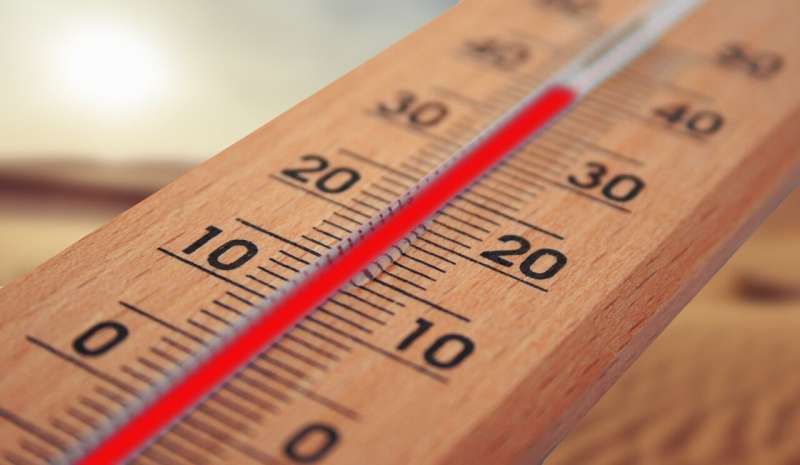Emergency medicine physician shares severe weather season tips for health, wellness

The Atlantic hurricane season is underway. That means the threat of severe weather is ever-present through Nov. 30. This threat includes high winds, torrential rains, flooding and tornadoes. Emergency medicine experts say now is the time to prepare to ensure you and your family remain safe during and after a storm.
“Preparation and planning are key,” says Dr. Michael Boniface, an emergency medicine physician at Mayo Clinic.
He offers these reminders to ensure your safety and well-being:
Prepare for several days
“The rule of thumb is to look at your household members, pets included, and know what you will need for at least 72 hours to keep everyone safe, nourished and hydrated. Have it ready at a moment’s notice,” says Dr. Boniface. “Evacuation may not always be necessary but being prepared will save you critical time when you need to load up and head out at short notice.”
Have a ready bag
Dr. Boniface suggests each family member, including four-legged family members, have a “ready bag” that includes supplies and necessities, such as batteries, flashlights, clothes, food and bottled water. Don’t forget health and first-aid items.
“When putting together your ready bag or hurricane box, everybody knows to bring adequate clothing, food and water, but what a lot of people don’t realize is that you need to bring all the medications that you take on a regular basis for yourself, your family members and your pets,” says Dr. Boniface.
Dr. Boniface recommends having a minimum of three days’ worth, but ideally bring a week’s worth of medications. Although many pharmacies can provide emergency refills for a short period of time for many medications without a doctor’s authorization, it’s better to pack what you need. “And I recommend that you keep a list of all medications, including dosage and instructions with you just in case.”
Ventilate well
One of the most common consequences of a natural disaster, whether it’s a hurricane, tornado or flood, is the loss of electricity. Portable generators are a great option, but Dr. Boniface reminds that precautions need to be taken when operating a portable generator to eliminate the risk of carbon monoxide poisoning.
“Generators are extremely useful,” says Dr. Boniface. “However, some generators have older, incomplete combustion, which will result in carbon monoxide and other dangerous exhaust. They should only be operated outside in well-ventilated areas because we do see an increase in incidents of carbon monoxide exposure during and after storms.”
Symptoms of carbon monoxide exposure can be subtle and gradually progress so you don’t know there’s a problem until it’s too late, Dr. Boniface adds. Carbon monoxide exposure can result in nausea, headaches, fatigue, sleepiness and death.
“In particular, if you notice that more than one household member ― and even your pets ― are experiencing unusual symptoms, you need to get to a safe, well-ventilated space and call emergency services to come investigate,” Dr. Boniface says.
Also, never operate a grill inside your house or another poorly ventilated area. “In addition to the risk of carbon monoxide and other fume exposures with grilling, there is an increased risk of burns. I recommend if you are going to grill, use an electric starter,” says Dr. Boniface.
Practice water safety
Having a clean water supply is important for hydration and hygiene during a storm. While many people stock up on bottles or jugs, others may fill up bathtubs or buckets, which Dr. Boniface says poses a drowning risk for children and pets, as does water that may result from severe weather.
“Floodwaters are very dangerous, and germs can also lurk in standing water. Use common sense and be mindful of your children, especially around water,” says Dr. Boniface. “With young children, it only takes an instant ― and it only takes a couple inches of water. The best advice I can give you is if your children are going to be around water, stay with them, stay focused and have a plan.”
Avoid temptation and wear appropriate gear
During severe weather, it can be exciting to admire Mother Nature and head outside to catch a glimpse of lightening or a wind funnel. Dr. Boniface says it’s more important to shelter in place.
“You have to resist the temptation to go explore, especially when it’s dark,” says Dr. Boniface.
And when it’s time to clean up, proper clothing and footwear are a must, he says.
Dr. Boniface says the most common injuries he sees after a natural disaster are related to accidents that could have been avoided, such as:
- Not wearing appropriate shoes and stepping on a sharp object.
- Falls from ladders or roofs.
- Chainsaw injuries from clearing brush, fallen trees or debris.
Source: Read Full Article
